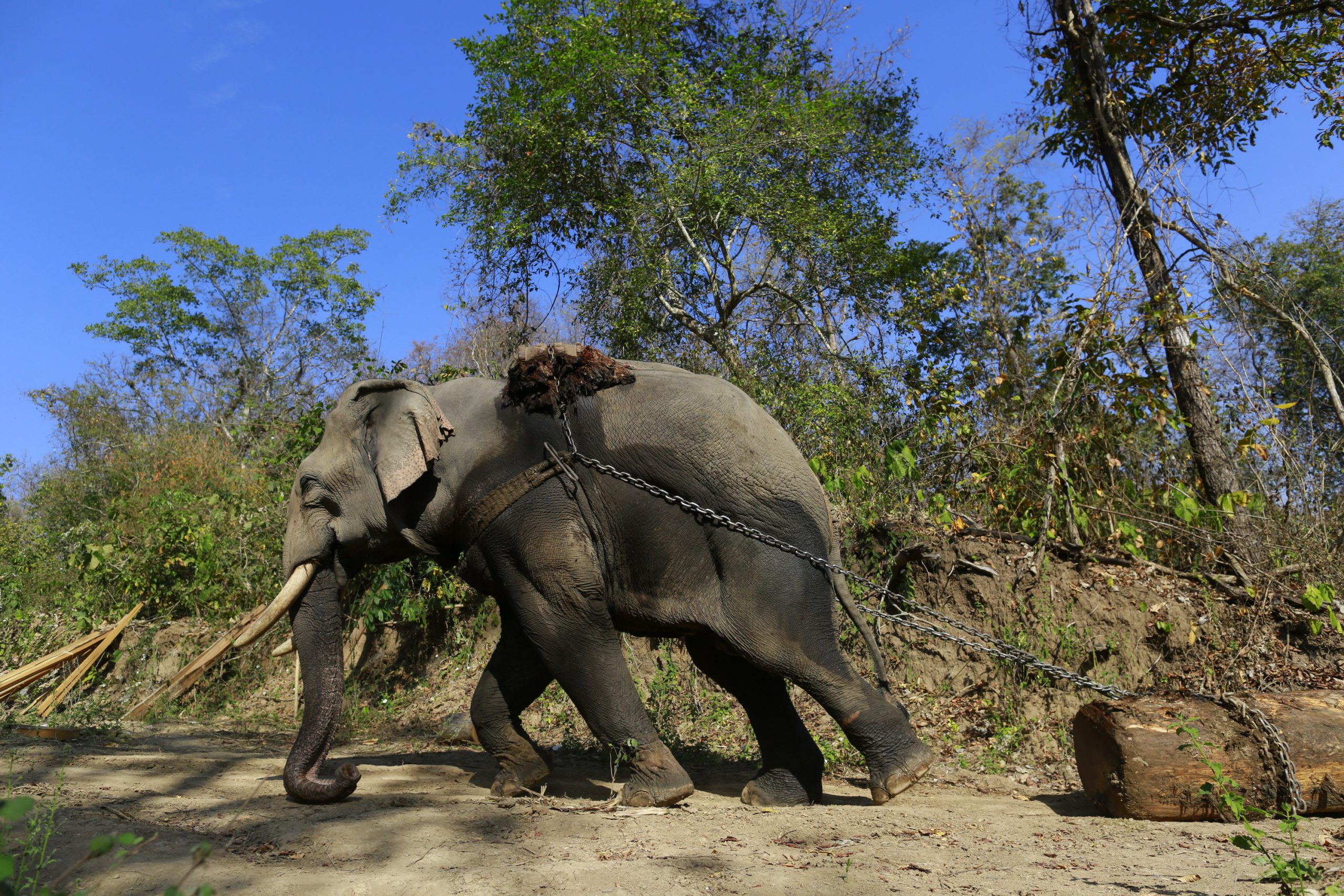A group of environmental NGOs have unveiled a breakthrough plan to stop the decline in Burma’s elephant population. The Myanmar Elephant Conservation Action Plan (MECAP) is tasked with “securing the future of the country’s former timber-trade elephants” and those roaming wild, according to a statement released by the Wildlife Conservation Society Myanmar on Thursday.
Outlining action plans for the next 10 and 100 years, the strategy was developed over 12 months of consultations and research. Led by the Ministry of Natural Resources and Environmental Conservation’s Forest Department, and developed in partnership with WCS and other international partners including Fauna & Flora International, the framework identifies illegal poaching and logging, as well as the use of elephant parts in traditional medicine, as key areas of concern.
Burma has one of the largest populations of wild elephants in the region, thought to number in excess of 2,000. In addition, thanks in large part to the government’s complete ban on logging, more than 6,000 captive elephants previously employed in the timber industry face an uncertain and vulnerable future. While great news for the country’s shrinking forests, the crackdown has left private owners struggling to generate the income required to feed and care for their elephants. The full plan, seen by DVB, places the focus on education and a stricter registration system.
The immediate priority is bringing the country’s laws into alignment with international standards, notably the Convention on International Trade in Endangered Species of Wild Flora and Fauna (CITES), to which Burma is a party. At a wildlife conservation conference held in South Africa last year, signatories agreed to fight against the trade of ivory and elephant parts —demand for which remains strong in China and across Asia.
In the WCS statement, the government said the MECAP offered a valuable roadmap.
“The Myanmar government is seriously considering the recommendations of CITES to close its domestic ivory trade and to secure, register and manage our existing stockpiles of ivory,” said Win Naing Thaw, director of the Nature and Wildlife Conservation Division of the Forest Department.
“We also need additional support for the protection of elephants in the wild. This conservation plan for elephants is a great step forward, and we now have a solid foundation to address this vital issue in Myanmar.”
In early January, the government announced that the trade in elephant parts had increased tenfold in the last year. Used to treat everything from skin ailments to hernias, the bulk of harvested elephant products makes its way into China, but the domestic thirst for elephant-derived medicines is also on the rise, according to a report published by AFP earlier this month.
But the popularity of these home remedies has a body count. WCS reports, “133 wild elephant deaths [were] recorded over the last seven years, including 25 in 2016 alone.”
[related]
Finding ethical alternative ways to employ elephants has been a struggle not only for private owners, but also the state-owned Myanma Timber Enterprise, which owns the largest number of captive elephants in the country.
Following the logging ban imposed last year, MTE suspended leasing privately owned elephants. According to the MECAP, “The ban effectively resulted in 90 percent of the privately owned working elephants in Myanmar becoming unemployed, practically overnight.” The plan confirms that some of those elephants have been repurposed into illegal industries on the porous Burma-Thailand and Burma-China borders.
Burma’s burgeoning tourism industry has been the largest employer of the former timber elephants. But this has brought considerable safety risks, both to humans and elephants. Most of the pachyderms have no training before interacting with new mahouts or tourists — worryingly, already several casualties have been reported, including one only two days ahead of the MECAP’s release.
The report recommends that the government implement a “training program to produce highly qualified mahouts for elephant-related activities even in the post-logging-ban future.”



